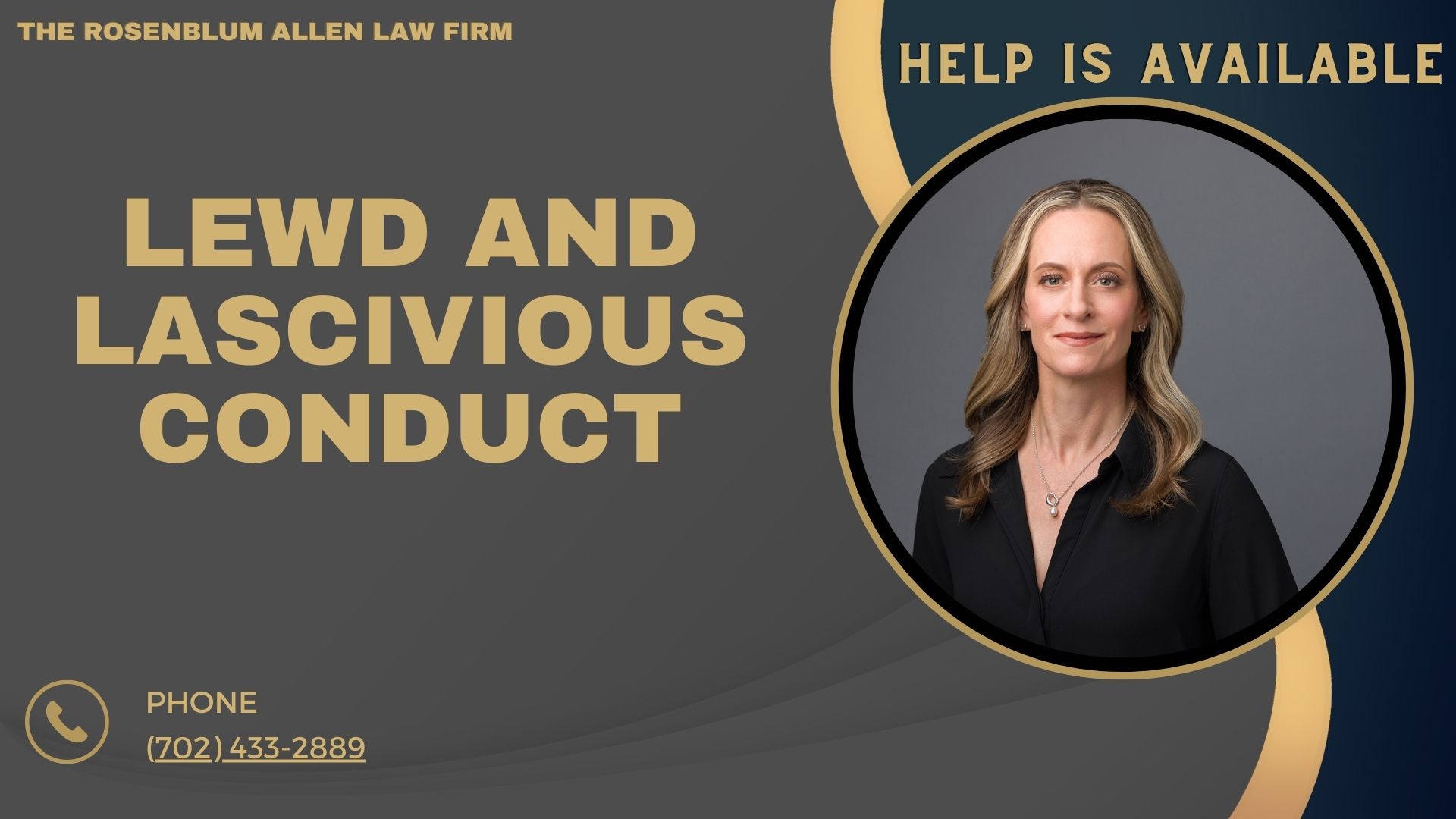,Lewd and lascivious conduct refers to behavior that is sexual and considered offensive or indecent by societal standards. Criminal statutes often define these acts, and the details can vary depending on the jurisdiction.
Explanation of “Lewd” and “Lascivious”
- Lewd: Generally means crude or vulgar sexual behavior. It implies actions intended to arouse sexual desire.
- Lascivious: Suggests an overt and offensive sexual desire. It focuses more on the intent to provoke or satisfy lust.
These terms describe behavior that society deems improper or immoral, particularly when it involves minors or occurs in public.
Everyday Acts Considered Under This Offense
Some examples include:
- Unwanted sexual touching.
- Exposing oneself in public with sexual intent.
- Making sexually explicit comments or gestures.
- Engaging in sexual activity in public.
The specific actions that qualify depend on state laws, but all involve an element of sexual impropriety.
Jurisdictional Variations
Differences in Definitions Across States
The definition of lewd and lascivious conduct changes depending on where the alleged act occurs. For example:
- In some states, it involves explicitly acts with minors.
- In others, it includes acts performed in public or acts intended to disturb others.
How It Is Prosecuted in Nevada
In Nevada, this offense often involves allegations of sexual activity or intent, mainly when minors are involved. Prosecutors may bring charges under different statutes, depending on the circumstances, such as:
- Indecent exposure laws.
- Sexual abuse or exploitation laws when minors are victims.
Understanding how these laws apply is critical for those facing accusations.

Criminal Penalties for Lewd and Lascivious Conduct
Potential Consequences
The penalties for lewd and lascivious conduct depend on the severity of the offense, the jurisdiction, and whether the victim is a minor. Courts consider factors like intent and prior criminal history when determining consequences.
Misdemeanor vs. Felony Charges
Misdemeanor: These charges typically apply to less severe acts, such as indecent gestures in public. Penalties may include:
- Fines ranging from $500 to $2,000.
- Probation of up to one year.
- Up to one year in jail.
Felony: More serious offenses, especially those involving minors, often lead to felony charges. Penalties can include:
- Prison sentences of several years or more.
- Substantial fines, sometimes exceeding $10,000.
- Long-term probation or parole.
Fines, Probation, and Jail Time
Here’s a breakdown of potential penalties for lewd and lascivious conduct:
| Type of Penalty | Misdemeanor | Felony |
|---|---|---|
| Jail/Prison Time | Up to 1 year in jail | 3–15 years in prison or more |
| Fines | $500–$2,000 | $5,000–$10,000+ |
| Probation | Up to 1 year | 5–10 years (or longer) |
Courts may also impose additional conditions, like mandatory counseling or community service.
Sex Offender Registration Requirements
Who Must Register
In most states, individuals convicted of lewd and lascivious conduct must register as sex offenders. Registration requirements often apply when:
- The offense involved a minor.
- The act was deemed sexually motivated.
- A felony conviction was entered.
Length of Registration
The length of time on the registry depends on the jurisdiction and the offense. Common durations include:
- Tier 1 Offenses: 10 years on the registry.
- Tier 2 Offenses: 25 years on the registry.
- Tier 3 Offenses: Lifetime registration.
Failing to register or update information can lead to additional criminal charges.
Defenses Against Lewd and Lascivious Conduct Charges
Common Legal Defenses
If you’re facing charges, it’s essential to understand that defenses are available. The specific strategy will depend on the facts of your case.
Lack of Intent
Intent is often a critical part of these cases. Prosecutors must prove that your actions were meant to be sexual or offensive. Possible defenses include:
- The act was accidental.
- The behavior was misinterpreted.
- There was no intent to arouse or offend anyone.
For example, accidental exposure due to a wardrobe malfunction may not meet the legal definition of lewd conduct.
False Accusations
Sometimes, these allegations stem from misunderstandings or even malicious accusations. Defenses in such cases might include:
- Proving the accuser’s motive to lie, such as revenge or custody disputes.
- Providing an alibi or evidence showing the act didn’t occur.
- Highlighting inconsistencies in the accuser’s story.
A skilled attorney can gather evidence and cross-examine witnesses to uncover the truth.
Importance of Legal Representation
Role of an Experienced Criminal Defense Attorney
Defending against these charges is complex. An attorney’s role includes:
- Explaining the charges and potential outcomes.
- Investigating the facts of the case.
- Negotiating with prosecutors for reduced charges or penalties.
An attorney can also argue to have evidence excluded if it was obtained unlawfully.
Building a Strong Defense
Your lawyer will work with you to create a defense tailored to your situation. This may include:
- Interviewing witnesses.
- Collecting surveillance footage or other evidence.
- Challenging the credibility of the prosecution’s case.
Having solid legal representation can make a significant difference in your case.

How Lewd and Lascivious Conduct Charges Impact Your Future
Employment and Housing Challenges
A conviction can leave a lasting mark on your record. This can create hurdles when it comes to:
- Employment: Many employers run background checks. A conviction may make getting or keeping a job harder, especially in professions requiring trust or working with vulnerable populations.
- Housing: Landlords often deny applications if a criminal record shows up. Registered sex offenders face even stricter housing restrictions.
Social and Personal Consequences
Beyond legal penalties, these charges can harm your reputation and personal relationships. Common impacts include:
- Family Tensions: Accusations may lead to strained relationships or even loss of custody.
- Social Isolation: Friends and community members may distance themselves.
- Public Shame: Convictions often carry stigma, especially if they require sex offender registration.
Why Prompt Legal Assistance Matters
Seeking Advice Early in the Process
If you’re facing accusations of lewd and lascivious conduct, time is critical. Acting quickly can protect your rights and improve your chances of a favorable outcome.
Here’s why early action is essential:
- Evidence Preservation: Witness statements, surveillance footage, and other evidence can disappear. Acting fast ensures your attorney can collect what’s needed to support your case.
- Avoiding Missteps: Anything you say to police or others could be used against you. Consulting an attorney ensures you avoid self-incrimination.
- Exploring Options: Early intervention may allow your attorney to negotiate with prosecutors or explore diversion programs before filing formal charges.
Proactive steps show the court that you’re taking the situation seriously.
Protecting Your Rights and Reputation
An accusation alone can damage your life. Protecting yourself from the start is essential.
Here’s how a lawyer helps safeguard your rights and reputation:
- Legal Guidance: An attorney will explain your rights and the steps you must take. This ensures you avoid costly mistakes.
- Damage Control: Your attorney can help mitigate public fallout, such as managing media or social circles interactions.
- Aggressive Representation: From challenging weak evidence to negotiating reduced penalties, a skilled attorney fights to protect your future.
Facing these charges is intimidating, but you don’t have to face it alone. With prompt legal assistance, you can take control of the situation and focus on moving forward.

Breaking It All Down
If you or someone you know is accused of this crime, seeking immediate legal assistance is essential. An experienced attorney can guide you through the process, build a strong defense, and fight to protect your future.
Remember, an accusation doesn’t define you, and with the right help, you can work toward the best possible outcome. Take action now to safeguard your rights and move forward with confidence.

Frequently Asked Questions
What is the difference between lewd and lascivious conduct and other sexual offenses?
Lewd and lascivious conduct refers explicitly to behavior that is sexual and deemed offensive, often in public or involving minors. Other sexual offenses, like sexual assault or harassment, involve more explicit acts of abuse or assault. The critical difference lies in the severity and the specific legal definitions that vary by state.
Can lewd and lascivious conduct charges be dismissed?
In some cases, charges for lewd and lascivious conduct can be dismissed if there is insufficient evidence or if the prosecutor fails to prove the intent behind the behavior. A defense attorney may also challenge the charges on legal grounds, such as false accusations or lack of evidence.
What are the long-term consequences of being labeled a sex offender for lewd and lascivious conduct?
Being labeled a sex offender can have lasting effects, including difficulty finding employment, restrictions on where you can live, and social stigma. This can affect your ability to work with children, live near schools, or travel to certain places. The lifetime implications of registration should not be underestimated.
Can a minor be charged with lewd and lascivious conduct?
Yes, minors can be charged with lewd and lascivious conduct, but the legal approach may differ. Depending on the state, minors may face juvenile penalties or diversion programs, but in more severe cases, they could face adult charges. These cases often focus on whether the minor’s actions were intentional and harmful.
Does the victim need to press charges for lewd and lascivious conduct to proceed?
No, the state can pursue charges even if the victim does not want to press charges. In some cases, especially where minors are involved, law enforcement and prosecutors may act without the victim’s consent to protect the public and hold offenders accountable.
What can I expect during a legal defense for lewd and lascivious conduct charges?
Your legal defense will likely involve thoroughly investigating the circumstances surrounding the alleged conduct. Your attorney will evaluate the evidence, question the accuser’s credibility, and look for ways to challenge the prosecution’s case. Depending on the specifics, your defense could focus on disproving intent, showing a lack of evidence, or highlighting the possibility of false accusations.
Are there alternatives to jail time for lewd and lascivious conduct charges?
Sometimes, alternatives to jail time, such as probation, counseling, or community service, may be available. Depending on the severity of the offense and whether you are a first-time offender, your lawyer may be able to negotiate a plea deal that results in a less severe penalty.
How do I know if I need a lawyer for a lewd and lascivious conduct case?
If you have been accused or arrested for lewd and lascivious conduct, it is highly advisable to consult with a lawyer. Legal representation is essential to ensure that your rights are protected and that you are not pressured into making statements that could be used against you. Even if you believe the charges are unfounded, an experienced lawyer can guide you through the legal process.

Additional Resources for You
Our lead attorney, Molly Rosenblum, Esq, has created a plethora of resources to aid you in your time of need. Below are some of the invaluable resources she has provided:
- Criminal Defense Attorneys: A comprehensive guide to understanding the role and responsibilities of a criminal defense attorney.
- Felonies in Nevada: An overview of different types of felonies in Nevada and their potential consequences.
- Attorneys Answer Your Questions About Miranda Rights: A detailed resource answering common questions about Miranda Rights.
- Firearms Defense Lawyers: A reliable guide for those seeking legal defense relating to firearms charges.
- Theft Defense Lawyers: An insightful resource for those facing theft charges and the potential defenses available.
- Winning Felony Cases in Nevada: A practical guide outlining strategies for winning felony cases in Nevada.
- Drug Possession Defense Lawyer: A comprehensive resource for those facing drug possession charges.
- Marijuana Possession Questions? We’ve Got Answers: A detailed guide answering common questions about marijuana possession laws in Las Vegas.
- Juvenile Defense Lawyers: A resource for those seeking experienced legal representation for juvenile charges.
- Juvenile Charges: Legal Advice: A guide offering legal advice on how to navigate juvenile charges.
- Charged with Solicitation? We Can Help: A detailed resource for individuals facing solicitation charges.
- Nevada Traffic Tickets: A comprehensive guide to understanding traffic tickets in Nevada.
- Warrant Defense Attorneys: A resource for those seeking legal representation for warrant defenses.
- Do You Need to Hire a Lawyer for Misdemeanor Charges?: A guide to understanding when it’s necessary to hire a lawyer for misdemeanor charges.
- The Nevada Arraignment – Frequently Asked Questions: A list of frequently asked questions about the Nevada arraignment process.
- The Definitive Guide to Sealing Criminal Records in Nevada: A guide outlining the process and requirements for sealing criminal records in Nevada.
- Sex Crime Defense Attorneys: An extensive resource for those in need of legal representation for sex crime charges.
- Nevada Shoplifting Laws: A detailed guide outlining the laws and potential consequences of shoplifting in Nevada.
- Gang Crimes Lawyer: A guide for those seeking legal representation for gang-related charges.

Offsite Resources For You
National Sexual Assault Hotline: Offers confidential support and resources for survivors of sexual assault. Visit https://www.rainn.org.
American Bar Association: Provides valuable information about criminal law and finding a lawyer. Visit https://www.americanbar.org.
National Center for Missing and Exploited Children: Offers resources for dealing with sexual exploitation and related legal issues. Visit https://www.missingkids.org.
U.S. Department of Justice – Sex Offender Registration and Notification Act (SORNA): Detailed information on the requirements for registering as a sex offender. Visit https://www.justice.gov.
The Innocence Project: Focuses on advocating for the wrongfully convicted and offers resources for criminal defense. Visit https://www.innocenceproject.org.
FindLaw – Criminal Law: Provides articles and guides on criminal law topics, including defense strategies for sexual offenses. Visit https://www.findlaw.com/criminal.html.
The National Association of Criminal Defense Lawyers: A resource for finding experienced criminal defense lawyers who can handle complex cases like lewd and lascivious conduct. Visit https://www.nacdl.org.

A Special Message from Our Lead Attorney

Molly Rosenblum
Dear Reader,
Thank you so much for taking the time to review our resources. We hope they have provided valuable insights and understanding into how The Rosenblum Allen Law Firm can assist you in your legal needs, specifically in defense against lewd and lascivious conduct charges.
We understand that each case is unique, with its circumstances and challenges.
Therefore, we invite you to schedule a free consultation with us so we can discuss your specific situation in detail.
Please feel free to contact us at (702) 433-2889.
Our dedicated team is ready to listen, understand, and offer you the guidance you need during this challenging time.
We appreciate your interest in our firm and look forward to the possibility of working with you.
Remember, we’re here to fight for your rights and provide you with the best defense possible.
Best Wishes,
Molly
The Rosenblum Allen Law Firm







